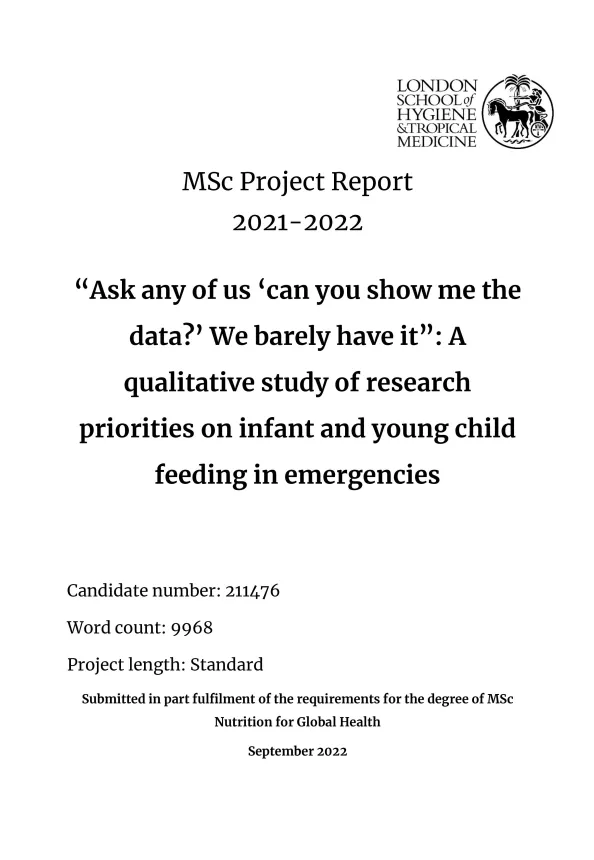A qualitative study of research priorities on infant and young child feeding in emergencies (MSc project)
Publication details
“Ask any of us ‘can you show me the data?’ We barely have it”
Abstract
Background
Humanitarian emergencies can compromise child feeding practices through forced displacement, unsolicited provision of breastmilk substitutes, inadequate sanitation, and food insecurity. With limited resources and increasing populations affected by emergencies, it is paramount that research on infant and young children in emergencies (IYCF-E) focuses on the most pressing priorities. This study aims to determine what these are.
Methods
This was a qualitative study. I conducted thirteen semi-structured interviews using an interview guide via Zoom. In total, twenty-three were invited to participate, four declined and six failed to respond. Of the thirteen, ten were recruited using purposive and three through snowball sampling. Questions related to ten previously published research priorities in IYCF-E. Participants had at least five years of experience in IYCF-E as practitioners, policymakers, or researchers. I analysed them deductively based on this study’s objectives and inductively to allow for identification of additional themes. This was done using thematic analysis with NVivo software.
Results
All participants commented on the lack of research on IYCF-E. Specifically, a recurring theme was the lack of evidence on impact and effectiveness across interventions. Most participants stated that critical priorities are the effectiveness of complementary feeding interventions and how to safely provide breastmilk substitutes. There is scanty evidence in the literature on IYCF-E, and in general, participants perceptions of this evidence on the research priorities aligned with the actual availability of evidence. These evidence gaps hinder IYCF-E programmes and, ultimately, health outcomes.
Conclusions
This study indicates that evidence generation should now be targeted at comparing the effectiveness of different complementary feeding interventions, and how to safely provide breastmilk substitutes without compromising breastfeeding. Future research must be focused on the implementation of IYCF-E interventions to determine their effectiveness, which would result in routine application and policy changing practices.
